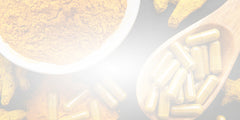
Mushrooms are a common addition to any diet for their nutritious value and health benefits. However, not all mushrooms are edible, and there are around 14,000 different species on the planet. The differing types of mushrooms can make finding one that can be beneficial to your health a challenge.
The sensation that each of these fungi elicits when consumed is even more concerning. Plenty of mushrooms induce different reactions and can produce several sensations. Knowing that mushrooms can have this effect can often cause aversions to the more peculiar-looking mushrooms.
One of the strangest mushrooms is known as lion's mane, whose peculiar appearance might be off-putting. However, not only is lion's mane 100% edible, but it also has a wide assortment of benefits that you can use to improve your overall health. This has made lion's mane a particularly popular health supplement.
However, as with all mushrooms, you might be concerned about how the consumption of lion's mane mushrooms will make you feel. Fortunately, we are here to answer that question for you. This article will discuss the different sensations and effects that may or may not arise when consuming lion's mane mushrooms.
Is Lion's Mane Psychoactive?
You have undoubtedly heard of people taking "shrooms" to elicit a high for recreational purposes. Given the odd appearance of lion's mane, also known as Hericium erinaceus, some might be concerned that it causes a psychedelic effect. However, you can rest assured that lion's mane is not the "magic mushroom" used to get high.
Lion's mane does have cognitive effects, but they are all positive and will not impair your faculties. Lion's mane is completely safe for human consumption without fear of feeling any intoxicating effects.
The mushroom that is responsible for intoxication is known as a psilocybin mushroom. Its ability to intoxicate the consumer is in its name, psilocybin. Psilocybin is a psychoactive compound known to produce psychedelic visions and is extremely dangerous.
Fortunately, psilocybin is completely absent from lion's mane, meaning you will not have to worry about experiencing any of the visions or health risks posed by "magic mushrooms." However, lion's mane does have certain cognitive effects that you can use to your advantage.

Unlike psilocybin mushrooms, which can annihilate your focus and leave you detached from the real world, lion's mane has the opposite effect. Consuming lion's mane can vastly improve our ability to focus on the situations in front of us. The reason is that there are antioxidants present in lion's mane mushrooms that stimulate the growth of neurons and strengthen existing brain cells.
Lion's mane being able to enhance our ability to focus makes it the perfect foil to psychoactive mushrooms that would otherwise impair our ability to function. The sensation of lion's mane will likely have you feeling like you can focus on certain tasks and activities better than you could before.
However, there is still more to what lion's mane can offer and how it feels. Fortunately, you can rest assured that the feeling of intoxication is not a sensation you will feel.
Is Lion's Mane Calming?
Similar to how lion's mane improves focus and does not yield an intoxicating feeling, you might wonder if it can calm your nerves. Lion's mane might not be able to make you feel as though you are detached from reality, but it does seem to affect our mental state positively. When you consume lion's mane and suffer from mental health issues such as anxiety and depression, you might feel a bit of relief from the psychological impact of those conditions. This is because lion's mane mushrooms have a powerful effect on brain cells that allow you to enjoy a respite from anxiety and depression.

One potential issue that can cause anxiety to flare up is inflammation, producing chronic pain and associated stress. However, lion's mane is a potent anti-inflammatory that can help reduce the strain of inflammation on your body and mind. This was confirmed in an animal study conducted on mice exhibiting symptoms of depression and anxiety. After providing them with lion's mane extract, the symptoms of both conditions diminished significantly. That said, the most impressive benefit of lion's mane in this regard has to do with a neurological benefit.
There is evidence suggesting that lion's mane can be used to improve the health of the hippocampus. While the hippocampus is primarily known for being the part of the brain where memory is stored, it also processes emotional responses. Emotional response can be tied to the symptoms and effects of depression, allowing us to overcome the sadness and despair it causes by reinforcing our brain's ability to process brighter emotions.
When consuming lion's mane, you might be able to enjoy a happier disposition and feel less anxious. However, some of the benefits of lion's mane might have you feeling better on a physical level.
Is Lion's Mane Good For Pain?
We have all experienced physical pain at one point, and to say it is unpleasant is an understatement. Often, we are directed to use pharmaceuticals to help cope with pain by our physicians. However, there might be a more naturalistic approach for certain not quite as severe injuries.
Lion's mane happens to be one of those supplementary tools that can help you feel a little less pain when suffering from a chronic condition. We previously discussed how lion's mane is an anti-inflammatory substance that can alleviate anxiety and depression that arises from inflammation. However, that same property makes lion's mane a helpful tool for alleviating physical pain.
Inflammation is our body's response to injuries that damage it, meant to serve as a protective barrier while we heal. Unfortunately, the inflammation does not stop in some cases and becomes chronic, causing more pain than it helps. Fortunately, lion's mane can be used to relieve the pain that comes from inflammation and also offers antioxidant effects that can further protect from oxidative stress.

Several studies confirm that lion's mane can counteract the inflammation and oxidative stress caused by several chronic conditions like inflammatory bowel disease or a damaged liver. You can use this same anti-inflammatory effect on more mundane injuries to minimize the pain.
So, the consumption of lion's mane mushrooms could have you feeling less pain from injuries or chronic conditions. Consuming the mushroom or its extract will allow its anti-inflammatory effects to benefit you and help you enjoy some pain relief. This is not to say that lion's mane can fully replace more common types of pain medication, but it can be a nice, natural alternative for lesser injuries.
Is Lion's Mane a Drowsing Agent?
Another common issue in life is insomnia, making it difficult to fall asleep or stay asleep. Insomnia is such a common problem that people have begun turning to supplements to help them fall asleep at night. While there might be some mushrooms with a drowsing effect, plenty of people wonder whether lion's mane offers the same benefit. In short, you might be wondering if lion's mane makes you feel sleepy. Whether a supplement has a drowsing effect can directly impact when or if you use it for your needs.
When it comes to lion's mane, no compound or byproduct in the mushroom makes you tired. However, while lion's mane might not put you to sleep, you might find it helps you feel relaxed enough to let your body undergo its natural drowsing process.

Some of the biggest sensations we have discussed have focused on how lion's mane can be used to relieve pain and anxiety. Anxiety and physical pain can make falling asleep very difficult and staying asleep next to impossible.
The former impacts sleep because you are constantly stressed out and unable to let your mind settle long enough for the body's drowsing process to begin. The more anxious or stressed you are, the harder it is for your mind to relax. Physical pain has a similar issue for your body, as pain makes it difficult for your body to let you fall asleep since pain triggers a subconscious survival instinct to seek relief. Using lion's mane can allow you to resolve both issues and leave your mind and body feeling relaxed enough for nature to take its course.
While lion's mane might not be able to put you to sleep, it might be able to help you stay asleep. There is more specific information on lion's mane and sleep to be gleaned, but the general idea is that it can protect you from insomnia indirectly. So now your main concern should be figuring out how to introduce lion's mane to your body.
How to Take Lion's Mane
Lion's mane is an edible fungus with a unique fruiting body compared to more common types of mushrooms. This peculiar appearance might give you pause about actually consuming it, but it is perfectly safe and has a fairly pleasant taste. If you prefer the raw approach rather than extracts or supplements, your best bet is to cook and consume the fruiting body like any other mushroom. However, you do not have to consume the mushroom as it is to enjoy the benefits it has to offer. Lion's mane can be consumed by using it to create other treats.
By grinding up lion's mane mushrooms, you can use it as an ingredient in a nutrient shake that you can drink on the go. If you have a bit more time and a penchant for cooking, you can use lion's mane for baking a sheet of special lion's mane cookies that will bring all the nutrients and benefits of the mushroom itself. Lion's mane is malleable enough to be cooked or consumed in various ways. However, there is an alternative for those who are averse to the taste of mushrooms.

Lion's mane has enough benefits that the industry to extract and refine its essence into supplementary capsules has risen. These supplement capsules can be taken as needed. These supplements will allow you to get your daily dose of lion's mane with a few easy-to-swallow capsules. Ideally, the capsules will contain 1,000 mg of lion's mane per pill, but they can vary. Your best bet is to follow the serving size printed on the label to get the most out of your supplement.
No matter how you choose to introduce lion's mane to your body, there is only one question left to ask. Where can you acquire quality lion's mane for your health needs?
The Nu Healthier You
Despite its strange appearance, Lion's mane has made a name for itself as a powerful health supplement for both mind and body. When you consume lion's mane, you will feel like you are coming out of a fog that has left you stumbling for an exit. It allows you to feel clear of mind and will alleviate the pain you might have endured in the past.
This strange mushroom is an excellent way to supplement your physical and mental health, with the benefits being further evaluated as science carries on. While the exact sensations you will feel while using lion's mane might vary and are not uniform, the odds are high that you will feel much better after using it. However, if you are curious about lion's mane, you might be wondering how to acquire a safe supplement.

Fortunately, this is what we at NuVitality can provide. We offer a 1,000 mg lion's mane capsule that you can safely use for your needs. Our product has been lauded for alleviating brain fog and making you feel clear of mind. With a mere two capsules a day, you will reap all the benefits associated with lion's mane without needing anything more than a glass of water.
Using these natural substances to improve our health is a practice that grows more popular with each passing day, so why not join the party? Visit our website today and begin the journey to the Nu, healthier you.
Do you have any questions about the Lion's Mane mushroom? Was there anything that we mentioned that you're not quite fully grasping? If so, please feel free to reach out and contact us at any time! We'd be more than happy to answer any of your potential questions!





![[Guide] Can You Take Turmeric With Your Other Vitamins?](http://nuvitality.us/cdn/shop/articles/A_Bowl_of_Powdered_Turmeric_medium.jpg?v=1663544569)
